Click to rate this post!
[Total: 0 Average: 0]
The Voyage Out audiobook
Hi, are you looking for The Voyage Out audiobook? If yes, you are in the right place! ✅ scroll down to Audio player section bellow, you will find the audio of this book. Right below are top 5 reviews and comments from audiences for this book. Hope you love it!!!.
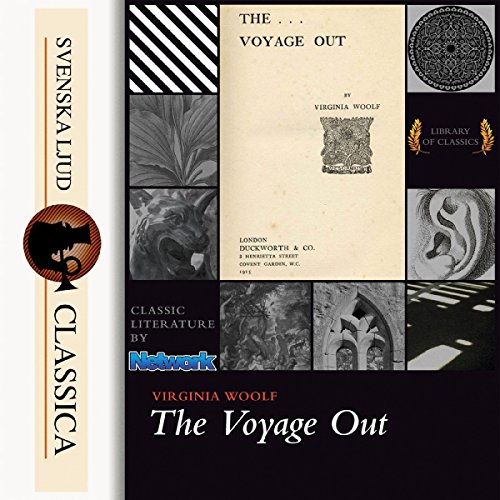
Review #1
The Voyage Out audiobook free
I first read Virginia Woolf 17 years ago, as a sophomore in college. I had just discovered Modernism, and having gotten through Joyces _Ulysses_, a handful of Faulkner novels, and T. S. Eliots _The Waste Land_, I felt that Woolf was the next logical step. I skipped class one day (something I rarely did) and sat at the library trying to figure out what _To the Lighthouse_ (1927) was about. The more I read, the more confused I became. A collection of critical essays on the novel gave me an appreciation of it, but I still had to admit to myself that, much as I had wanted to like the novel, the experience had not been a good one. I tried _Flush_ (1933) immediately after; this biography of the Brownings\’ dog was more up my alley in those days, but I knew it was an odd piece in the Woolf corpus. Ten years would pass before I picked up _Mrs. Dalloway_ (1925) with a here goes nothing attitude. And I was blown away. Eventually I re-read _To the Lighthouse_, understood it, and loved it. _The Waves_ (1931) is waiting for me on a shelf; since so many people call it Woolfs masterpiece, I want to leave the best for last. I decided to read _The Voyage Out_ (1915) because I wanted to experience early Woolf. As is well known, it was with her third novel, _Jacobs Room_ (1922), that Woolf began to produce the formally experimental work she is known for. No one would call _The Voyage Out_ one of Woolf\’s most significant novels, but it is nevertheless an interesting novel with an engaging story, and perhaps Woolf needed to write it (and her second novel, _Night and Day_) before exploring more difficult terrain. _The Voyage Out_ presents a traditional narrative structure. The first quarter of the novel is concerned with a voyage by ship, as a handful of British men and women make their way to South America. The novels central figure (one simply cannot call her a heroine; she is not a Jane Austen character) is Rachel Vinrace, the daughter of the ships captain. She is musically inclined, but she has grown up without a mother and her father has kept her in absolute ignorance about the relationships between men and women. Her aunt Helen assumes the task of educating Rachel, of helping her to become a woman. This first part of the novel will be of great interest to fans of Woolf, as in it she introduces Clarissa Dalloway and her husband Richard. These characters are gone by the time Rachel and Helen reach their destination, but they make a lasting impression on the protagonist. Most of the novel takes place in the fictional town of Santa Marina, located somewhere near the Amazon River. It is there that Rachel meets Terence Hewet, an aspiring novelist and the missing element, according to Helen, to complete Rachels sentimental education. Through long dialogues about art, politics, religion, love, marriage, race, and other existential topics, Woolf draws us into the world of a group of Edwardian aristocrats, a socio-economic stratum she knew very well. More important than the novels plot is its portrayal of a social class and its mentality during the time immediately before the Great War. Thematically and formally, _The Voyage Out_ is in dialogue with Jane Austen (\”the greatest, according to one of the novels characters, because she does not attempt to write like a man, something that could also be said of Woolf), George Eliot, and Henry James, as this is a novel of manners. The idea of the voyage to an exotic location makes one think of Joseph Conrad and of E. M. Forster. The most obvious question the novel raises in terms of plot is whether the couples who have become acquainted and/or engaged will experience a happy ending together. Unlike the traditional nineteenth-century novel, _The Voyage Out_ does not provide simple solutions, and in some cases does not even provide solutions at all. By the glimpse we get into the environment in which the characters move, we can tell that they are self-satisfied, jaded, and completely illiterate when it comes to meaningful social interaction, let alone something as complex as love. The remote location the characters choose for their holiday, instead of providing recreation, only accentuates the sense of ennui that envelops them. When they receive letters from London, they are like animals that have been fed, their silence likened to that of the lion-house when each beast holds a lump of raw meat in its paws. After dinner, the vacationers are like crocodiles so fully gorged by their last meal that the future of the world gives them no anxiety whatsoever. One of the characters, Evelyn Murgatroyd, who understandably asks to be addressed by her first name, voices the opinion that modern life is detestable, that everything must have been so much easier for the Elizabethans. After a failed attempt at communication, Terence muses: Why was it that relations between different people were so unsatisfactory, so fragmentary, so hazardous, and words so dangerous that the instinct to sympathize with another human being was an instinct to be examined carefully and probably crushed? This is a society that has driven itself into an emotional dead-end. The novel also contains extensive commentary on the relationships between men and women. In chapter XVI, Terence laments that most writing about women does not come from women themselves. I believe we still dont know in the least how they live, or what they feel, or what they do precisely, he tells Rachel. Its the man\’s view that\’s represented, you see. Think of a railway train: fifteen carriages for men who want to smoke. Doesnt it make your blood boil? If I were a woman Id blow some ones brains out. Dont you laugh at us a great deal? Dont you think it all a great humbug? You, I mean–how does it all strike you? Woolf may have made Terence too perceptive for a young man of his class and epoch, but thats another issue. Why four stars? Simply put, _The Voyage Out_ is not _Mrs. Dalloway_, but neither is it a failure. I would not call it a magnificent novel, but it is at least a very good one. Woolf was 33 when it was published, but she had been working on it since age 24. If you are looking for a physical copy, I recommend searching for the 2000 Modern Library hardcover edition, which includes a brilliant introduction by Michael Cunningham, author of _The Hours_ (1998). More than a mere assessment of the novel, the 35-page text constitutes an introduction to Virginia Woolf. My next Woolf novel will be her last, _Between the Acts_ (1941). Thanks for reading, and enjoy the book!
Review #2
The Voyage Out audiobook streamming online
This is Virginia Woolf\’s first so it was before her more experimental stream of consciousness writing. I haven\’t read her later works yet. I\’m glad I started with this one because if I don\’t end up liking that style it would have kept me from this. Her writing is beautiful in an understated non pretentious way. It feels effortless and lyrical. I was mesmerized. If you need something plot driven, stay away because you won\’t get that. This is about Rachel, a nave sheltered young woman who takes a voyage with her aunt and uncle from England to South America, and matures through interesting conversations about politics, art, science, religion and relationships. It\’s short on action but long on ideas written in gorgeous prose. I\’ll definitely read more Woolf and likely in order. The Dalloway\’s were characters in this book so maybe she expounds on other characters in future books.
Review #3
Audiobook The Voyage Out by Virginia Woolf
This version of \”The Voyage Out\” seems to have been translared from another language into English by someone who is not a native speaker of English. The writing is filled with grammatical errors and awkward syntax. This is not Virginia Woolf\’s work!
Review #4
Audio The Voyage Out narrated by Grant Hurlock
This is the third novel I\’ve read by Virginia Woolf and whilst I found it to be the most \”readable\” of the novels that I\’ve read to date I couldn\’t in all honesty say that it was an easy read. I kept waiting for something to happen, some momentous event to push the story along. It wasn\’t until I gained some patience and just went with the flow that I began to see the light and appreciate the vein in which it is written. One thing that has become apparent is that I shall have to source a copy of Mrs Dalloway now. Was also surprised to find that it was the \”debut\” novel for the author.
Review #5
Free audio The Voyage Out – in the audio player below
This novel, I believe, was Virginia Woolf\’s first. It also underwent considerable alteration in the tortured journey towards publication, much of its (original) politics being too strong for its publishers to stomach. Which makes one wonder what has been lost. What remains, however, is a moving story of a number of English men and women cast adrift in a luxury hotel or villa in some unspecified South American port. It is also a love story – with tragic consequences that would be unfair of me to fully reveal in this brief review. Let me just add that it also has one of the best accounts of sea-sickness (I too am a sufferer) that I have ever read (it made me queasy just to read it!) and one of the best accounts of the hallucinations brought on by fever since Flaubert\’s \’Madame Bovary\’ – no mean feat for a new, young writer. This is a marvelous book and an excellent introduction to the extraordinary novels that were to follow \’Voyage Out\’.
Recommend Books
Galaxyaudiobook Member Benefit
- Free 2000+ ebooks (download and online)
- You can see your watched audiobooks
- You can have your favorite audiobooks
Galaxy audio player
If the audio player does not work, please report to us, we will fix it as soon as possible (scroll up a little you will find the "REPORT CONTENT" button).


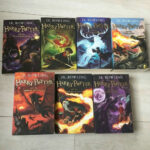

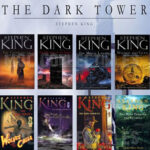
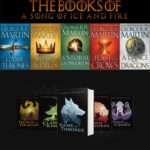
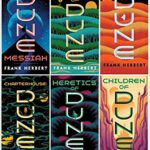
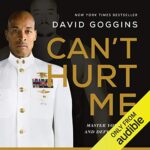




0 Comments: